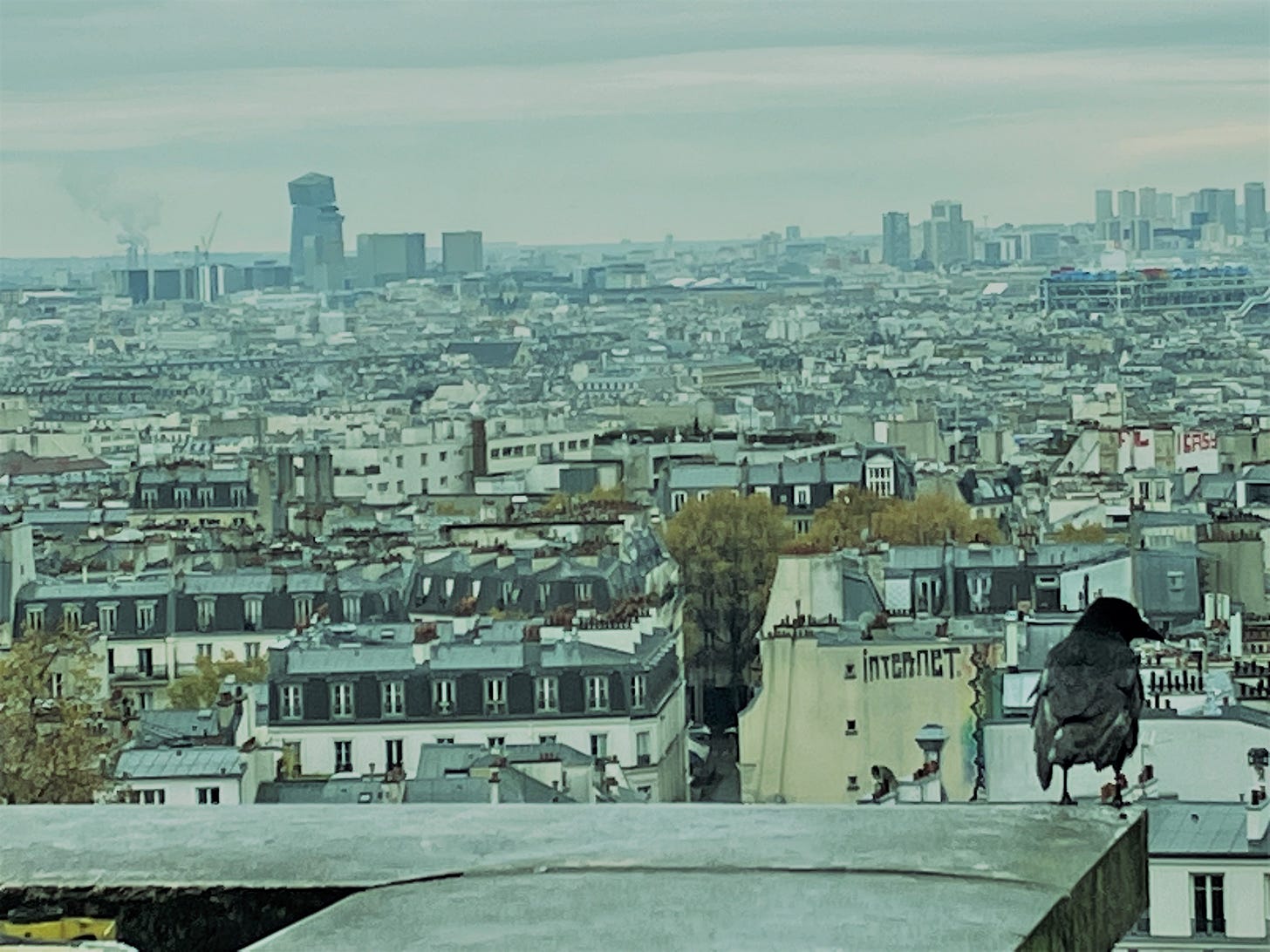[A crow looks contentedly over its realm, which happens to be the city of Paris, from a vantage point atop Montmartre.]
The indescribable satisfaction of settling into bed at night after a long and hard day in which one has the sense, however delusional, that one has accomplished something that will stand, glowing within with the energy produced by that …




